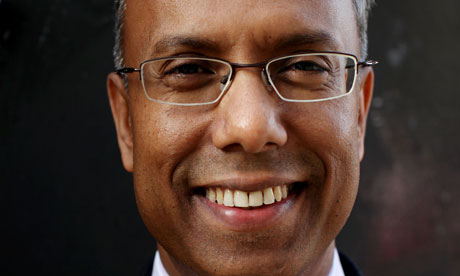 Photograph: Graeme Robertson
Photograph: Graeme Robertson A feature of the rise of Britain's first Muslim executive Mayor is that his enemies have so far found him fireproof. This might seem remarkable in view of the forces mustered against him: principally the Labour Party establishment working partly in co-operation with a highly agitated form of populist right-wing journalism. Yet as a strategist on the campaign of Labour's vanquished opponent Helal Abbas acknowledged following the latter's resounding defeat last October, Rahman proved highly adept at "political jujutsu" - drawing strength from his enemies' attacks.
Bear all that in mind when considering two big themes of Tower Hamlets politics since that decisive autumn poll: one, Rahman's performance as an independent Mayor who places himself on the Left yet must push through large budget cuts; two, Labour's response to his securing the mayoralty as it again seeks to reassert its customary dominance. In fact, add a third theme, a much, much more important one - how politics in one of London's poorest boroughs can do good work for those living there who need it most.
The four post-election months have seen the main protagonists adjusting to the election's thumpingly decisive outcome. The failure of Rahman's pre-Christmas overtures to Labour and other mainstream party Councillors to join him in his cabinet has obliged him to draw from a very small pool of members. Those he's chosen have all formerly represented Labour but supported Rahman's mayoral campaign and are now his fellow independents. The cabinet comprises six people, including Rahman himself and his deputy.
Unsurprisingly, given his shunning by the other parties, this is smaller than those of Rahmans' fellow borough Mayors Jules Pipe in Hackney, Steve Bullock in Lewisham and Robin Wales in Newham, though note that a mayoral cabinet is allowed to comprise only two people.
Critics have raised eyebrows about the amount of time Rahman has spent with his communications chief. I don't know if this has been unusual compared with other borough mayors when new in their jobs, but if he's been giving his image and presentation skills some attention I can't say I'm surprised. With Labour and the more devoted of his media pursuers having long portrayed him as the creature of Muslim extremists he'd have been a fool not to seek to demonstrate that he wishes to represent all sections of Tower Hamlets's population, as he pledged to when a mayoral candidate.
How effectively has he been doing this? His non-attendance at November's remembrance service in Tower Hill did not go unnoticed. The East End took a terrible pounding during World War II, so the annual ceremony has deep local significance. Inevitably, Rahman's absence from last year's event has been interpreted by some in the context of the opposition of many local Muslims to more recent British military activity - the Iraq war was the catalyst for the rise of the Respect Party. However, word from mayoral sources is that Rahman's absence was due to a family member's illness, a matter the mayor did not wish to have made public. Rahman was wisely quick to condemn anti-Christmas posters plastered by mysterious Muslim activists in parts of the borough (and also in Hackney's Narrow Way, incidentally). Otherwise, he's been (quite rightly) bashing Seb and Co's terrible decision to re-route the Olympic Marathon away from the East End and doing the sorts of things that all Mayors do.
As for the budget, that presents him with a competence challenge as well as a financial one, though opposing him makes difficult demands too. How would the Labour group, still led by Abbas, go about wielding the knife that national government has so kindly handed to leaders of Councils in poor areas? It remains divided over the attitude to take to Rahman, though accounts of the depth, extent and proportions of its splits vary according to whom you talk to. One Lutfur-friendly view is that about a majority remains "very against" him, but that some are quite supportive and others float somewhere in between. According to that analysis he's making pretty much the most "progressive" job he can of putting through the cuts, focusing on high-level bureaucracy and resisting bringing in means testing for older and disabled users of services.
A Lutfur-hostile Labour critique, put to me last week, is that the budget proposals - they're summarised on pages 35 and 36 - lack sufficient detail, notably in relation to children's centres. Since then, Rahman has re-affirmed to an anti-cuts rally that none of the centres will be closed and that there will be no "frontline cuts" to their staff, but the Labour group will continue probing for weaknesses, not least any that can be depicted as evidence of Rahman not being on top of his job. Quite apart from the raw arithmetic, has he grasped the organisational implications of dramatically shrinking the Council's workforce?
The Mayor lacks a built-in Council majority and he needs to compile one if his budget is to be passed. It could be rejected, but that could only happen if the bulk of the 32 Labour members voted against it. The government would then become involved and might insist on even deeper cuts. Would the Labour group wish to be held responsible for that? Unlikely. So both the Mayor and Labour group have an interest in getting the budget through. That means amendments and horsetrading, a process that has already begun. It's almost co-operation of a sort. Might it catch on?
Meanwhile, controversies surrounding Rahman's short-lived selection as Labour's mayoral candidate last September have been rumbling on. Peter Golds, who leads the Council's Conservative group, wrote to the borough's police commander, Detective Chief Superintendent Paul Rickett, on 21 September asking him to investigate "apparent breaches of the Political Parties, Elections and Referendums Act by Lutfur Rahman." Rahman had taken legal action against the Labour Party's exclusion of him from the shortlist to be its mayoral candidate. He has since insisted that he paid all his legal bills himself, but Golds's letter claimed that the Brick Lane restauranteur Shiraj Haque had, "stated to a number of local politicians that he funded the legal action" and that, "This is a reportable donation that has not been reported [to the Electoral Commission] within the [legal] time limit."
Golds's letter also questioned whether Rahman's campaign website and some of its literature were undeclared "benefits provided by Mr Haque to Mr Rahman." But the police did not investigate and neither did the Electoral Commission to which Golds copied his letter to Rickett. The Commission tells me that Golds also wrote to it separately on the same day seeking clarification about a "hypothetical situation" that might relate to Rahman, Haque and election expenses. The Commission says it replied explaining to Golds that he would have to make a specific allegation but that none have yet been forthcoming. Golds is unhappy with the responses of both the police and the Commission. I've asked him to provide me with copies of his correspondence with the latter on the matter of Rahman's expenses.
The Labour Party too is looking into the events of last autumn. A report compiled for its National Executive Committee has considered allegations, relevant to the party's candidate selection process, of membership irregularities in Tower Hamlets. I have a copy of this report, which looked into complaints that at least 149 of the 1,217 members listed as eligible to vote in the selection ballot - which Rahman comfortably won - did not live at the address next to their name. The report says that there is "no evidence" that 75 of these 149 "were ever registered as an elector at the address where they claimed their Labour Party membership at the time of the [candidate] selection [vote]," and that "16 of this group of members participated in the election."
That figure of 16 will be of interest to those who've previously read a description of the report composed for the Telegraph by their terribly important London Editor Andrew Gilligan. That is because Gilligan's description did not include that figure. I don't know why. That said, his acknowledgment that "seventy-five fake members would probably not have been enough, on their own," to swing the vote Rahman's way is justified. It's also an understatement: Rahman won by a margin of 182. Given that the report to the NEC found that in fact only 16, not 75, possibly ineligible people actually voted, any argument that Rahman's victory was due to the influence of ineligible voters is considerably weakened. Indeed, the report makes no claim or assumption about how those 16 people actually cast their votes. The electoral system used allowed voters to place as many or as few candidates as they wished in order of preference. For all we know every one of the 16 could have made Rahman their last choice as candidate or not even voted for him at all.
This is not, of course, to say that such irregularities are a good thing in any political party, whether in Tower Hamlets or anywhere else. The report says that its inquiries "suggest a concerted effort to add people to the membership list in Tower Hamlets was being undertaken by one or more individuals," although it doesn't attempt to assign responsibility. In this it differs from the nine-page statement submitted under Helal Abbas's name to the NEC meeting last September at which it was decided that Rahman would be replaced as the mayoral candidate by Abbas.
That statement claimed that on the basis of visiting "about 60%" of the addresses on the Tower Hamlets membership list, Abbas had found that "at least 197 people were not living at the address that they were registered at" and linked this to Rahman by asserting that he "improperly inflated the membership of the local party by paying for people to join up who had no interest in the Labour Party." The statement continued: "This was revealed in interviews conducted by the Telegraph journalist Andrew Gilligan."
Gilligan had written about these interviews two weeks before the date at the bottom of the Abbas statement - 17 September 2010 - saying that they had been filmed and that, "The evidence will be passed to the Labour Party should it request it." Four days later he published "the transcripts of two of the filmed interviews I did with some of the sham 'vote-bank' Labour members signed up by Lutfur Rahman."
These make for absorbing reading. They don't look good for Rahman, but I wonder what a lawyer acting in his defence would make of them were they produced as evidence in an imaginary court of law? Perhaps he or she would ask to for the interviewees to be called as witnesses and to see the films themselves, to assess the body language of those involved, to hear the tone of their voices and so on, in order to get a fuller sense of the conversations and their meaning. I've been assured by the Labour Party's London Region that it told Gilligan on two occasions last year that it would be happy to look at any film footage of this nature he'd care to supply, but that nothing has yet arrived. Perhaps the material has been sent to some other department of the Labour Party. Perhaps there's been some confusion over the word "request."
Whatever, I'm sure the NEC would love to see Gilligan's "sham 'vote-bank'" footage. I know I would. It would help with assessing the claims in the Abbas statement, the general credibility of which has always appeared questionable. It hardly helped that the name "Lutfur" is spelt "Luthfur" throughout - something Abbas himself seems most unlikely to have done. How exactly was the document compiled and who exactly was involved in compiling it? My own inquiries have suggest that other parts of it are, at best, exaggerated. And one section of it, which contains a serious allegation against Rahman, has been flatly contradicted by none other DCS Paul Rickett.
The Abbas statement referred to the English Defence League's plan of last June to march through Tower Hamlets in response to an Islamic conference that was scheduled to be held in the borough. At the instigation of Abbas, who led the Council at that time, the conference was cancelled - probably rightly, in my view - and the EDL then called off its march. However, a small group of EDL supporters did make an appearance in the borough at that time. In response, a group of young local Muslim men gathered around the East London Mosque. Abbas's statement to the NEC says in paragraphs 18 and 19:
Lutfur Rahman addressed them and denounced the Council leadership and declared that they were colluding with the English Defence League...I was informed of these comments by the borough Commander Detective Chief Superintendent Paul Rickett who was so concerned that, whilst he was on holiday, he actually rang Lutfur Rahman and expressed his disapproval for the incitement to public disorder.
Last November, Abbas received a letter from Nick Pierce of the Met's Directorate of Legal Services. I have a copy of it. It says that DCS Rickett, "Wishes it to be known that the reference to him in paragraph 19 of the statement is factually incorrect and misleading." Pierce's letter went on to say that Rahman had phoned Rickett on the day in question to tell him about the Muslim youths gathered around the mosque, that Rickett had ascertained from his deputy that the EDL members had "long since departed" and then asked Rahman and the mosque's executive director Dilowar Khan to pass on this information to the youths on his behalf. Pierce's letter concludes:
It is DCS Rickett's position that, having given those assurances, both Mr Rahman and Mr Khan acted quickly and responsibly to dispel the significant level of misinformation circulating via social networking sites and text messages, and their actions contributed to the area returning to relative normality at that time.
DCS Rickett did not, as is stated [in the Abbas statement], ring Mr Rahman and express "his disapproval for the incitement to public disorder." DCS Rickett would also like to state as a matter of record that these remarks have been submitted in the statement to the National Executive Committee of the Labour Party without his knowledge, consent or approval.
In my view the NEC's eventual conclusions can only gain authority if they acknowledge the Abbas statement's flaws. I'm told that their inquiries are now going beyond the integrity of membership lists to look back over aspects of Rahman's time as a Labour politician. They are particularly interested in any past relationships with members of Respect, which backed him after he declared he would run as an independent and ran no candidate of its own.
All of this, of course, pertains to the matter of whether Rahman will eventually be re-admitted to the Labour Party, something he undoubtedly desires. So far as I can tell a decision about that appears some way off and in the balance. I have no strong feelings about the matter and, as I've said before, I'm glad it's not my problem. My one hope is that the NEC's inquiries are thorough, fair and, most importantly, realistic about the Tower Hamlets political landscape in all of its peculiar complexity.
Such realism would include, among other things, a refusal to accept or collude in reductive media characterisations of Tower Hamlets as an "Islamic Republic", to cite the irresponsible and sensationalist title of a Dispatches TV show that exemplified the tendency. The borough is no such place and those who buy in to the depiction of the Council as in thrall to fundamentalist Islamic forces might like ponder how that squares with Stonewall recently declaring it the twelfth most gay-friendly employer in the country, the highest-placed of all London local authorities.
Even local Labour Party members who think the very worst of Rahman and are deeply unhappy about the political activities of the Muslim community group the Islamic Forum of Europe are weary of elements of the media's pre-occupation with framing all debate about the borough, its problems and its people within a narrow, marketable narrative about sinister Islamist influence or, to borrow the "sexy" language of journalistic self-promotion, its "infiltration" or "subversion" of the corridors of power as "revealed" through secret filming or mood-lit translations of bits of leaflets.
Tell me something new. The world and its Uncle Bert know that politicised forms of Islamic activism are an established part of the territory in Tower Hamlets - without them Respect could not have existed - and those involved don't seek to deny it. Their critics accuse them of secrecy and opportunism, and I can see their point. But Muslims in any part of London who think society would be the better for being organised in line with whatever definition of Islamic principles they subscribe to are entitled to those views, to campaign for them and to join political parties too, as are (and do) religious campaigners of other faiths. Indeed, in the age of the Big Society, it is practically government policy to encourage this.
Part of Lutfur Rahman's triumph has been to position himself as a street-savvy politician who sticks up for such entitlements on behalf of the community he grew up in while at the same time espousing liberal, "progressive" and, he would say, Labour values. An articulation of that synthesis appeared in his interview with The Muslim News:
As far as I know, the IFE is simply a religious and social welfare organisation. Some people might find them socially conservative, but they encourage people to vote and take an active part in their local community. The truth is that Britain's Muslim communities are taking their place at the table, they're voting, they're articulating their grievances, they're working to better their lives and the lives of their friends and neighbours. They are developing an identity that is both British and Muslim and there's nothing wrong with that.
Whatever else Rahman is accused of or eventually deemed guilty of, no one can accuse him of misjudging the mood of the electorate. Labour, by contrast, has looked a mess, and just when it seemed to have seen off the challenge of Respect.
Kazim Zaidi, a political adviser to Rahman, has written an academic case study of recent political developments in Tower Hamlets in which he indicts Labour's use of what he terms "the Islamist paradigm", largely generated in the media, to justify a decade of "special measures" in Tower Hamlets and the blocking of Rahman's mayoral candidacy. Zaidi tells me that it was published by the European Muslim Research Centre at Exeter University but was withdrawn after a Tower Hamlets politician mentioned in the essay threatened legal action.
I've been unable to contact the person in question and make no comment on the article as a whole. But I've found the general concept of an "Islamist paradigm" whose effect is to constantly define Muslim political participation in terms of fears about extremism quite helpful. It seems to sum up what some Tower Hamlets Labourites give the impression of having been thoroughly captured by in recent years, just as too many in the media have. In the era of the battles with Respect I can understand the attraction: politics in Tower Hamlets can be very ugly, as the mayoral election showed. But where has succumbing to this got them lately? I'd say precisely nowhere. Remember that remark about jujutsu?
Though unenthused by the recent, fashionable deriding of all religion, I've no wish to see socially-conservative, theocentric forces gaining ground in Tower Hamlets or anywhere else. I've also heard too many tales of intimidation and the power of local money to kid myself that all is as it should be in the gossip-drenched, ever-shifting and splintering, and highly politicised environment of Bangladeshi Tower Hamlets. But, NEC, are anyone's hands perfectly clean? If voters rejected Labour for an ex-Labour independent shouldn't your first priority be making those voters a better offer? Does imposing candidates under "special measures" make matters better or worse in the long term? If there are certain sorts of people you don't want joining the Tower Hamlets party are you going to bring in a special regulation to stop them and how might it be worded? In a borough where people move around a lot can membership lists ever be policed satisfactorily?
These are hard questions to answer, the more so for the divisions between Rahman and some of those who've most publicly opposed him sometimes looking to barely exist. Also present at last week's anti-cuts rally was Bethnal Green and Bow MP Rushanara Ali, who narrowly defeated Rahman to become Labour's candidate for the seat and who attacked him stridently during the mayoral election campaign. Ted Jeory has reported that Rahman held "a long meeting" last month with Tower Hamlet's's other MP Jim Fitzpatrick, an equally fierce critic in the recent past, about working together to oppose the government's cuts.
I talked recently to Joshua Peck, deputy leader of the Labour group. "The real challenge is how to deliver real and meaningful change," he said. The remark was made in reference to Rahman and his need to get results, but maybe it could also be applied to the challenge facing Peck's party on the ground. In keeping with East End history, today's Tower Hamlets is ever-churning. Its Bangladeshi community is as much a part of that as all the others that have live there, arrive and move on.
No iron law says that the attractions of Islamism - a media "boo" word these days but one that can cover a wide spectrum of perspectives and opinion, many of them far from extreme - will remain as strong to some East End Bangladeshis as it has in recent years, that adherence surely strengthened by a scolding, one-dimensional and sometimes gawping scrutiny from some in the media media and national politicians alike that is bound to increase defensiveness. Similarly, there is no unbreakable rule saying that other communities in the borough must remain so relatively disengaged from politics as some have become. Moods and demographics change. Progressive politics - whatever that means in this context - needs to respond accordingly.
In the end, the only solution for Labour may be to take its leader Ed Miliband resolutely at his word and rebuild the local party from the ground up, broadening its base and listening to all those it wants to serve more carefully than ever before. That's an easy thing for a hack in Hackney to write and a much, much harder thing for a politician in Tower Hamlets to do. But it sounds rather like democracy.
Sign A Petition To Government Here, Help Save Ancient Woodlands Today!
I Feel Like You Have Given Me My Life Back." Mr Sykes, Rotherham
Try GFTs Award-Winning Trading Platform. Free Practice Account.
's comment
In order to post a comment you need to be registered and signed in.














![Kay Jordan marched in Hanbury Street, Princelet street on 17 January 2006 [pictured below]](https://blogger.googleusercontent.com/img/b/R29vZ2xl/AVvXsEjmFpkcZgAW1eZKWId6O-xApvo7_zu4rL0QLz_ByB_FHaKbyUkAFfaPT1RdxXqjX-YVvveRu2zdPyr0pXqiFK-0SAjQd5vyTwGgGDnyU600Gk-gu-MueRhRIg_UhFT66fo8gzCl2tM4BX-8/s760/KHOODEELAAR%2521+No+to+Crossrail+Hole%252C+Demo+in+Hanbury%252C+Spelman%252C+Princelet+Streets+and+Brick+Lane+London+E1+17+January+2006.jpeg)
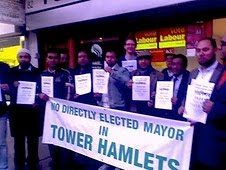
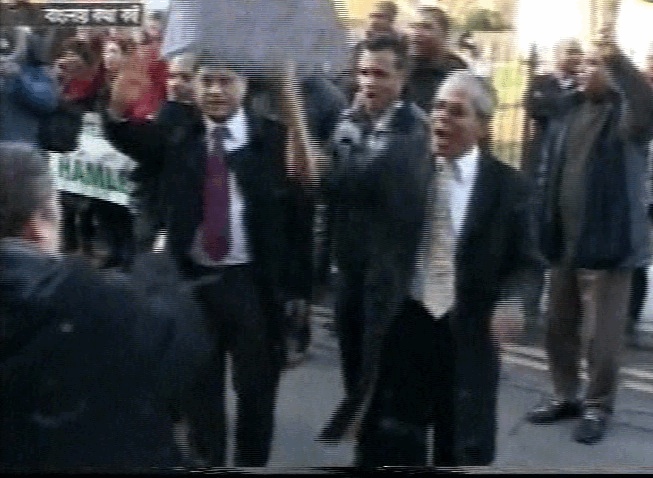






















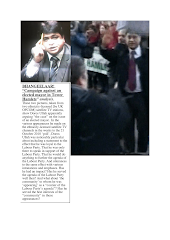


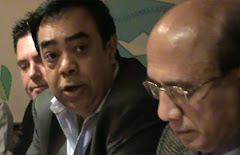

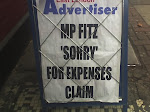
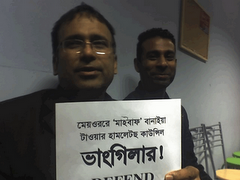
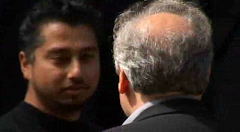
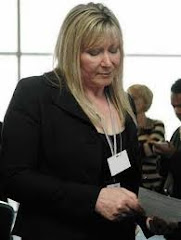
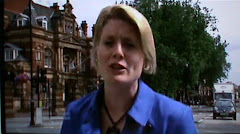
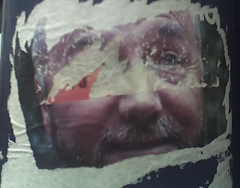

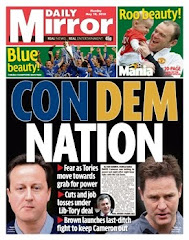
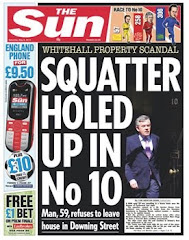
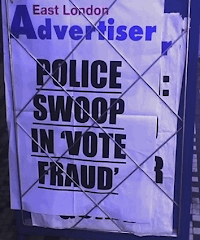
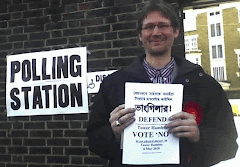
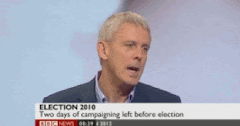
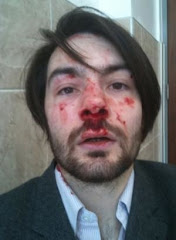
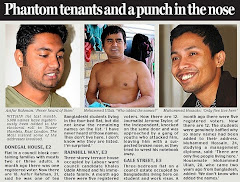
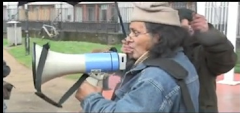
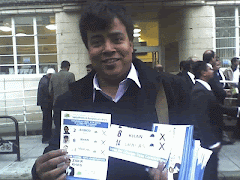

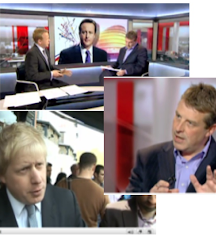
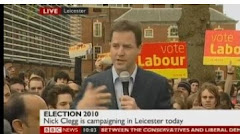
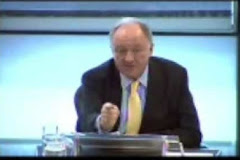
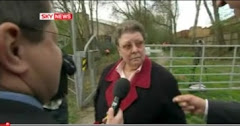
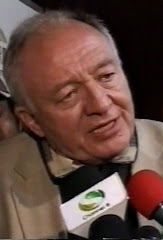
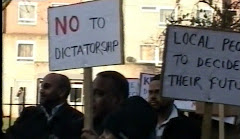
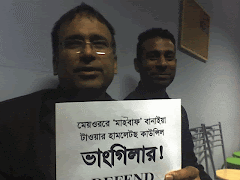

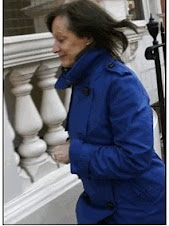
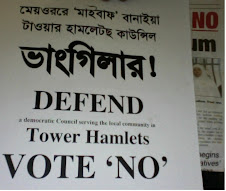
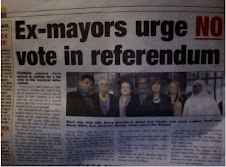
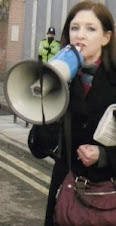
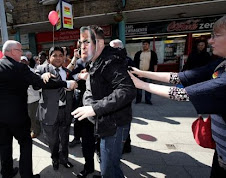
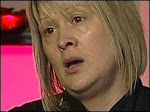
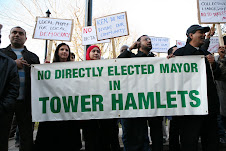
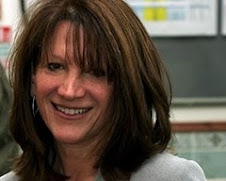
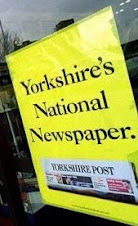

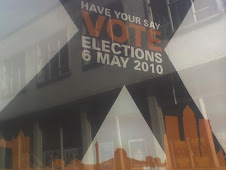
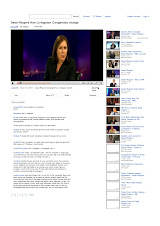
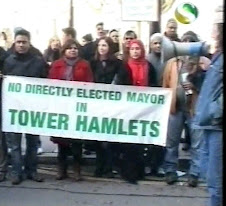
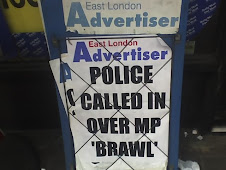
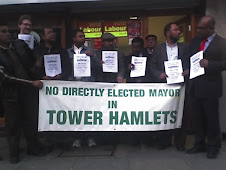
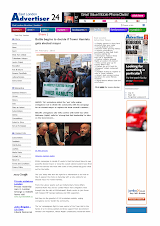
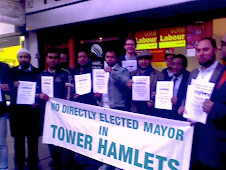
Comments in chronological order (Total 6 comments)
11 February 2011 10:40PM
This is the most balanced reflection on Tower Hamlets under the elected mayor that I have read, and raises questions about much of what has been written or broadcast in the last year.
I still hope Labour will have the moral courage to acknowledge the mistakes of the NEC's knee-jerk response to Abbas's statement. If they don't allow Lutfur Rahman to return to the fold, ultimately the residents of Tower Hamlets will lose out, as the running of the Borough will continue to take second place to political infighting.
I've been concerned to read Gilligan's interview with Sheikh Hasina, the PM of Bangladesh, in which he seems to be digging up forty-year-old sores left from the war of independence. Others suggest this may be part of a deliberate campaign to exploit the war to smear IFE, and thus Lutfur by tenuous association.
Any Bangladeshi here knows how much 'back home' politics plays in Tower Hamlets politics, though it had seemed to be steadily reducing. The political scene is messy enough as it is without muddying the waters further.
12 February 2011 12:11AM
Dave Hill is an example of everything wrong with how theso called left wing media reports on such issues.
Labour rejected the guy and barred him for very good reasons, most of which can be found by a quick Google search.
Only the story became less about why that was and more about some mythical "Labour Party machine" that doesn't exist beyond the rather closed minds of some journalists.
The idea that a whole election was swung on "back home" politics is a complete nonsense and patronising viewpoint. What won the election was the created myth of a little oppressed innocent being wickedly stopped by a faceless machine from standing. That isn't a "Tower Hamlets," thing or a "back home" thing it has happened lot and lots of times. The only thing these people have in common (Galloway, Sheridan, Rahman et al) is that they a personal following which is then hyped by a easy story of "if they are radical and been kicked out by this lot then they must be OK"
So Labour were left with two options. 1) Have a mayor who emboddies all the things wrong with local politics in the area and take the blame for what happens. 2) Try and stop him winning.
The fact is for all the idea that politics is bent and power corrupts, what you seem to have missed is that the easy decision would have been to let him stand and win. We would have had a Muslim Labour Mayor. The hard decision was blocking him in the full knowledge of what would happen.
Far from the disaster you claim, the fact this man does not represent the Labour Party makes me very happy. Sad for the majority of people in Tower Hamlet, but they voted for him.
And that is where Dave Hill and his anti Labour agenda completly misreads the situation. Yes Labour are sad they lost but not because it was some awful event for the party, more that some awful guy was elected on the back of a justified decision.
We all know Dave Hill would rather have a Muslim mayor incapable of making a sound decision than a Labour one. Fair enough. Just stop pretending round the edges than he is anything other than an unmitigated disaster for TH and Dave Hill helped put him there.
12 February 2011 7:49AM
Quoting Dave Hill’s concluding paragraph [11 February 2011]:
“In the end, the only solution for Labour may be to take its leader Ed Miliband resolutely at his word and rebuild the local party from the ground up, broadening its base and listening to all those it wants to serve more carefully than ever before. That's an easy thing for a hack in Hackney to write and a much, much harder thing for a politician in Tower Hamlets to do. But it sounds rather like democracy.”
Unquoting Dave Hill [with emphases added by the commenter below].
We are commenting here to correct some of the misleading contents and insinuations.
We shall come back to deal with any other that we find appropriate in due course.
We here concentrate on Dave Hill’s “discussion” on the spelling of particular last name and we examine some other aspects of the Dave Hill’s London Blog in perpetuating the discriminatory myths about “local expertise’ by a “colleague” of Dave Hill’s.
We start by examine Mr Hill’s statement: “the only solution for Labour may be to take its leader Ed Miliband resolutely at his word and rebuild the local party from the ground up”.
What is Ed Miliband? Is he a magician or is a super human? He is neither. As for “rebuilding” of the former Labour Party, Miliband is even less. He has neither the knowledge nor the interest nor the commitment to rebuild democratic accountability anywhere. He is a machine leader of a machine bureaucracy that is banking for his ‘aim to reach the shore of power’ on the bankruptcy of the British political vessel as it is evident via the democracy-denying, democrat deficit Houses of Parliament Whatever Ed Miliband may have puffed on, he is no different on the evidence so far from any of his predecessors in that post when it comes to the fundamental purpose of the Party bureaucracy. When that purpose is ‘relaunched’ in areas like Tower Hamlets during routine ‘periods of elections’, it is as dull, dishonest and unjust and undemocratic as it ever has been. So what secret are you alluding to when you invest all; your rhetorical hopes on Ed Miliband doing the undoable? Do tell. As for us ordinary folk in Tower Hamlets, we see no evidence now and we have found none in their records of the past half century, of the former Labour Party being anything other than a machine vehicle for time-servers, petty careerists and several brazen liars. The same conclusion applies to what is now the “Tower Hamlets Lib Dems”. The several ‘names’ that you have now ‘introduced’ and or promoted about the former Labour Party in Tower Hamlets are as contaminated on their records as could be found in any of the past five decades. Our Movement has drawn attention to those during the past fifty years and demanded action against the crooked behaviour of so many time-serving place men and women in the former Labour Party that the list of the perpetrators and the allegations against them alone would take up more space than is available on your blog comment slot. The former Labour Party has persisted in failing to take action. Why? Because the entire bureaucracy has been itself corrupt. Let any of that bureaucracy's key decision-making obstructors come out and declare themselves and we shall read them the details of their perpetration with ample updater diagnostics.
The only thing that is ‘new’ about your promotion of those is your name and your blog, Dave! You are now doing what decades of “Fleet Street” media has done for the corrupotocrcay that is the former Labour Party.
About the rest of your concluding Comment, you have not qualified the phrase “a politician in Tower Hamlets”. Without qualification, that phrase is full of misleading and vacuous potential. For the sake of democratic accountability, we shall attempt a working qualification as always in context here. Perhaps by a politician in Tower Hamlets you are referring to those who seek or occupy “elected” posts. Examples include local Tower Hamlets Borough council posts or the London Assembly post/s or the posts of MPs for any of the two Parliamentary constituencies. Secondly you must be meaning the post or position seekers and the postholders in the former Labour Party that is still floated in Tower Hamlets as a bureaucratic version of its former form at the present time. Finally you must be meaning the couriers of the various sub-candidates and sub-post-seekers that make up the number that also serves as ‘the organisation’ of the former Labour Party. On the facts of the contens of your blog, you could not be meaning people in the ordinary population in Tower Hamlets. Had you meant any of us, you would have said something about the Movement that has actually been working to defend the key universal values from which the time-serving opportunists you DO recognise have benefited [personally and in terms of their own careerists factions] without a shadow of a doubt. You also refer to the Conservative Councillors’ group ‘leader’ Peter Gol
12 February 2011 7:52AM
[continued]
You also refer to the Conservative Councillors’ group ‘leader’ Peter Golds who has been doing business fort his cause by parading as a ‘Tower Hamlets politician’ although he has yet to come on the record ANYWHERE as representing the concerns and the demands of the ordinary democratically conscious people in Tower Hamlets. We have pointed this out before about Peter Golds and we do so again here, in context. We also point out that you have not expressly examined poverty of any description in your blog. Indeed, you have not even mentioned the word poverty once. In our knowledge of the ordinary lives of the overwhelming majority of ordinary people in Tower Hamlets, there are three types of poverty currently affecting the quality of life for ordinary people in Tower Hamlets. Poverty as experienced and felt and as measurable by income, earnings or none. Secondly poverty as evident in the absence of accountably, transparently democratic representation at any of the local state levels as linked to ‘electoral’ processes. The third type of poverty is in the absence of delivery of the promised or the purported standard of democracy in accordance with ordinary expectations as defined by ethics, morality or due process in most of the state and local agencies and institutions as operating in Tower Hamlets.
Although you appear reserved about Peter Golds, you perform a telling act of excusing him. You let Mr Golds off the hook by deciding to not scrutinise him on the allegations that he had INSINUATED. You say (“) Golds’ letter claimed that the Brick Lane restauranteur Shiraj Haque had, "stated to a number of local politicians that he funded the legal action" and that, "This is a reportable donation that has not been reported [to the Electoral Commission] within the [legal] time limit." (”). Who are the “number of local politicians”? We ask because we know [as defined above again] for a fact that there is no such thing as “local politicians” without links, strings and careerist negotiations and or deals. So whatever “local politicians” is supposed to refer to in relation to Peter Golds’ own promotion of his “party'-linked business would be someone [or more than one] who would be found to be already compromised by some other relevant factors vitiating any attempt to bring about an ethical and a democratically accountable atmosphere in Tower Hamlets. That would mean that you should have demonstrably queried Peter Golds’ assertion. Had you done that, you would have found ON THE EVIDENCE that a true investigative examination of his c,aims would have to reveal that Peter Golds was basing HIS bit of the allegations as much on partisan and untenably non-democratic ground as any of his implied Party political opponents would be doing given the same observed and non-democratic and or antidemocratic objective. Your reference to “the Brick Lane restauranteur Shiraj Haque” is also inaccurate and in context significantly misleading. The person you name as “Shiraj Haque” is in fact known in the community simply as Shiraj. This is true of today as it has been since the end of the 1970s when he was first listed in the public domain as an active member of the community in Tower Hamlets. One of the original validators for Shiraj getting INTO the public domain as an active member of the local community in the late 1970s was the campaign that our Movement was conducting at that time in defence of the community following the racist murder of Altab Ali on Thursday 4 May 1978. So the question that arises now , 32 years on, is this: who has been responsible for moderating or altering or amending the community-based persona of Shiraj? Has there been a legal reason why the spelling of his stated last name was or has been changed? If so, what was that legal reason? If none then why haven’t you or to be more practical your ‘local expert’ [‘colleague’] [promoted by you in the past few months as ‘the’ de facto ‘expert’ on “Tower Hamlets”] explained that change in the spelling of the stated last name cited about Shiraj? This is also important in view of the many references to Abbas Uddin “Helal” as made by you and by at least three others in or about “Fleet Street”. One of those, David Cohen, the self-described ‘rescuer of the dispossessed of London’ as promoted via the London EVENING STANDARD, invaded a democratic accountability forum that had been organised by the Spitalfields Small Business Association [SSBA] on 18 October 2010. The SSBA’s Director Kay Jordan, who sat on a chair next to where David Cohen had been sitting before he stood up to launch his invasion, wondered to our campaign within minutes of David Cohen’s invasion, what would have been the best way of stopping Cohen from violating that meeting. And what was his violating act?
12 February 2011 7:54AM
[continued 2]
Why a personal insinuation against Lutfur Rahman and as retailed on behalf of the interests that were promoting Abbas Uddin “Helal” as their chosen courier of the Blaired party band. David Cohen abused the entire local, SSBA-organised meeting, by standing up and demanding to know from Lutfur Rahman why Lutfur Rahman’s alleged supporters had been spreading an allegation about Abbas Uddin “Helal” abusing or beating his [“Abbas Uddin “Helal”:] wife. Abbas Uddin “Helal” himself was absent from the event. And there was no legal, constitutional law, ethical or democratic or electoral reason why Lutfur Rahman had to even comment on that utterance by the invader David Cohen. But Lutfur Rahman did. And ion making a comment “denying” Cohen’s invasive utterance, Lutfur Rahman confounded the Cohen-contrived confusion even further! He proceeded to deny having abused HIS wife! And a suitably timed supportive sounding woman stood up in a row behind where David Cohen was sitting [and or standing, depending on what moment of his invasion he was engaged in] in the audience and stated words to the effect that she supported her husband Lutfur Rahman totally! In his ‘response’ on the same occasion, Lutfur Rahman also said that he would sue anyone who said what Cohen was saying! This part was in fact triggered by the Lib Dems’ John Griffiths whose own utterance [to Lutfur Rahman’s mind and to observers present] represented a repetition in effect of what Cohen had done earlier in the invasive disruption of the proceedings of the SSBA-organised meeting that had been intended to offer local people a say on what the local Tower Hamlets Council should be doing to support the local small businesses and similar initiatives. Considering the fact that David Cohen VIA the London EVENING STANDARD played a promotional part in propping up the campaign propaganda and image for the Lib Dems and the Conservatives in the run up to the 06 May 2010 elections on the alleged basis that Cohen had been “helping” the “DISPOSSESSED” in London [ played as a “counter” to the then Gordon Brown-fronted regime that was, so the “DISPOSSESSED” theme suggested, causing the DISPOSSESSION to areas typified by the East End Borough of Tower Hamlets], his violation of the people who were attending the SSBA-organised meeting on 18 October 2010 showed just how irrational Cohen was, how contemptuous he was of the rights of the people in the East End and how indifferent he was to what we had to say on that day about our “local Council Cohen on that occasion dispossessed us from our democratic say! Our campaign intervened at the right time to ensure that Cohen was not able to carry with him any pretext that he could later retail for the delectation of the likes of Peter Golds in another exaggerated, untrue and untruthful attack on the invented image of our community portraying it as not only being intolerant to “journalists” but also to “free speech”! Cohen abused the kindness and generosity of the meeting and in his abuse he denied that meeting the freedom to exchange views and information about matters to do with the local Council’s financial and democratic conduct. It is clear that in your “accessible” and “sympathetic” “style”, you too are engaged in doing the same.
Why else is it that you promote Peter Golds and then fail to show why his alleged allegation to the Metropolitan Police did not go anywhere? Why is it that you refer to everything else about the various allegations about corruption over the Blaired Party's bureaucracy and its handling or mishandling of the selection etc, but fail to even recognise that there has been a fully active campaign against the very constitutional change to Tower Hamlets being lumbered with a post called executive mayor that is the persistent topic of your particular blog posts. Given that two fifths of the stated votes cast in the alleged referendum were in favour of the NO option, how can you treat 40,000 voters as if they did not record their rejection of the bid to change the Council’s particular structure? Given also the fact that Abbas Uddin “Helal” was himself a “campaigner against an elected mayor system” for MONTHS, how is it that you leave that fact out as if it was not the central feature of the evidence of active contempt for ethics and honesty that the Bliared party bureaucracy has been exhibiting at every level over the matter? You state that you had spoken to Joshua Peck but then you do not include any substance. Why mention him then? If you had asked us, we could tell you that the same Joshua Peck had appeared along with our Campaign organiser on at least four platforms at “public” meetings held across Tower Hamlets between 06 February 2010 and 06 May 2010 “speaking and uttering arguments against” a directly elected executive mayor.
12 February 2011 7:55AM
[continuing 3]
We could add that without making any noticeable let alone substantiated apology to the Tower Hamlets community and the public the aforesaid Joshua Peck then began to make appearances on the Bliared Party promotional events in the Borough SUPPORTING an elected executive mayor system! He has remained silent on the fact that Bliared party candidates for Council ward votes on 06 May 2010 received far more votes than the NO question got. The significance of this is in the fact that JOSHUA PECK and other such Bliared Party candidates had been claiming that they were “campaigning against an elected mayor system” and that they were claiming that they had been ALSO asking their canvassed voters to vote NO in the allotted box on the referendum/ballot paper [held on the same day, 06 May 2010] as the general election and the London local council elections. All the evidence that we have obtained of the voters behaviour on that day in the in the run up to polling [and referendum on the mayor] day has shown that those who were actually genuinely approached about the serious flaws and the pitfalls of installing a directly elected executive mayor in fact voted NO. That raises the almost certain possibility that those, like Joshua Peck who were claiming to be campaigning for s NO vote on the referendum were doing less to secure a NO outcome than they were doing to get their personal election as councillor guaranteed. This discrepancy was deliberately created as admitted to our campaign organiser by one of Joshua Peck’s co-candidates in February-April 2010. According that candidate for a Council ward in Mile End, their priority was to get elected as councillors! Yet that ‘NO’ campaign ‘speaker at platforms’ kept on making appearances, even though she knew perfectly well that she was not campaigning for NO outcome as much as she was claiming to be when on the platform. Given the fact that that ‘No’ campaign ‘speaker’ was soon doing the “YES FOR candidate X as mayor” routine in Tower Hamlets during July-October 2010, the claims that anything any of them said at any time was based on ethics, principle or honesty is very difficult to accept. This is the real problem in the former Labour Party., As it is with the PRESENT Tower Hamlets Council, with or without a directly elected executive mayor installed.
Contrary to the prejudiced references you make to Tower Hamlets as a whole, the behaviour of the ‘elected councillors’ and their likes is the real problem as against a truly really actually actively democracy-delivering Council. For the reasons we have shown in this detailed factually revealing comment,. the same finding applies to Lutfur Rahman as it does to his alleged detractors.
0750 Hrs
Saturday
12 February 2011
BHANGEELAAR! The Campaign against an elected executive mayor in Tower Hamlets